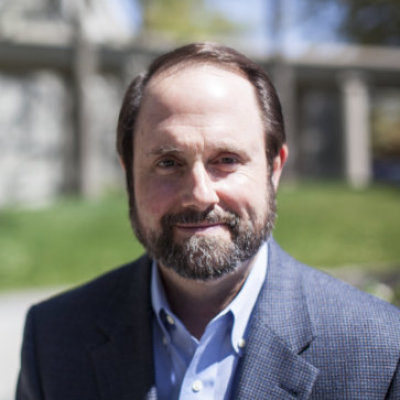Why You Need to See 'Same Kind of Different as Me'

It's unusual to meet the authors of a best-selling book that becomes a major movie. But that's what happened for my wife and me after Same Kind of Different As Me was published and became a cultural phenomenon.
Janet arranged an evening at the Dallas church we pastored for Ron Hall and Denver Moore to discuss their book with our congregation. Before they met, Hall was a successful art dealer in Ft. Worth, while Moore was homeless. According to Ron, their first encounter didn't go well: "After he threatened to kill everybody in the room, I tried to avoid him."
Their transformational friendship became the subject of their book and now a movie starring Academy Award-nominated actors Greg Kinnear and Djimon Hounsou and Academy Award-winning actress Renee Zellweger. I saw the film last night and urge you to see it and to encourage your pastor, congregation, and everyone else you know to see it. It is one of the most powerful and profound movies I've ever experienced.
I won't give away the plot of this amazing true story. Rather, I'd like to think with you about a reality that Same Kind of Different As Me makes clear. Brennan Manning makes my point better than I can: "God loves you as you are, not as you should be, since no one is the person they should be."
Let's explore his assertion in reverse order.
"No one is the person they should be"
We are each made in God's image and likeness (Genesis 1:27). However, we have each sinned and fallen short of our Creator's glory (Romans 3:23). This conflict between our intended nature and our fallen nature triggers a great disruption in our souls.
We know who we should be, but we also know that we are not who we should be.
So, we create what psychologists call an "idealized self," the person we wish we were. We learn to project this person to other people. Many live behind this facade for so long that it becomes who they believe themselves to be.
But this false self not only hides our real self—it damages it. It causes us to live in constant fear that others will find us out. It fosters a deep sense of inadequacy—if other people knew who we really were, they probably wouldn't like us.
Worst of all, it isolates us from the God who loves us and wants to bless us. Even God cannot relate to what does not exist. He cannot bless a falsehood. Our false self keeps us from all that is authentic in life.
In Running on Empty, Fil Anderson quotes an older pastor who advises us, "Be who you is, 'cause if you ain't who you is, you is who you ain't."
"God loves you as you are, not as you should be"
Here's the good news: God knows all about the masks we wear, but he loves the people behind them. Because he is love (1 John 4:8), his character assures us that he loves each of us as we are, where we are.
His Son died to pay the debt for every falsehood we have ever projected to the world or to ourselves. Now, "since we have been justified by faith, we have peace with God through our Lord Jesus Christ" (Romans 5:1).
But this peace is a gift we must choose to receive.
Our society is at war with grace. It measures us by what we do and how well we do it. It rewards our idealized projections. "Fake it 'till you make it" is the deceptive advice of a deceived culture.
Same Kind of Different As Me is God's invitation to authenticity. It offers his assurance that transformation begins when we admit our deception and ask our Father to accept us as we really are.
In the depth of our need we find the depth of his love.
Annie J. Flint was born on Christmas Eve in 1866. Her mother died three years later. She was raised by foster parents who died when she was young. She obtained work as a teacher but developed arthritis that became so severe it rendered her an invalid.
Unable to work, Annie supported herself as a poet. She suffered for more than forty years; her fingers were so bent and her joints so swollen that she could write only with great pain.
This week, a very dear friend sent me one of Annie's poems. Her words greatly encouraged my friend at a very dark time. When I read them, I knew I was to share them with you:
He giveth more grace when the burdens grow greater,
He sendeth more strength when the labors increase;
To added afflictions He addeth His mercy,
To multiplied trials, His multiplied grace.
When we have exhausted our store of endurance,
When our strength has failed ere the day is half done,
When we reach the end of our hoarded resources
Our Father's full giving is only begun.
Fear not that thy need shall exceed His provision,
Our God ever yearns His resources to share;
Lean hard on the arm everlasting, availing;
The Father both thee and thy load will upbear.
His love has no limits, His grace has no measure,
His power no boundary known unto men;
For out of His infinite riches in Jesus
He giveth, and giveth, and giveth again.
Originally posted at denisonforum.org





























